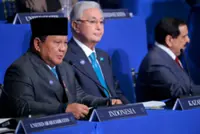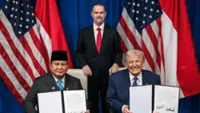JAKARTA (The Jakarta Post/Asia News Network): The Maritime Security Agency (Bakamla) has hailed last month’s completion of a six-month drilling project on Indonesia’s continental shelf in the North Natuna Sea as a “victory” over China’s constant objections.
In the past two years, interventions from China through a “grey hull” naval approach and diplomatic threats became increasingly common around the Natuna Islands.





